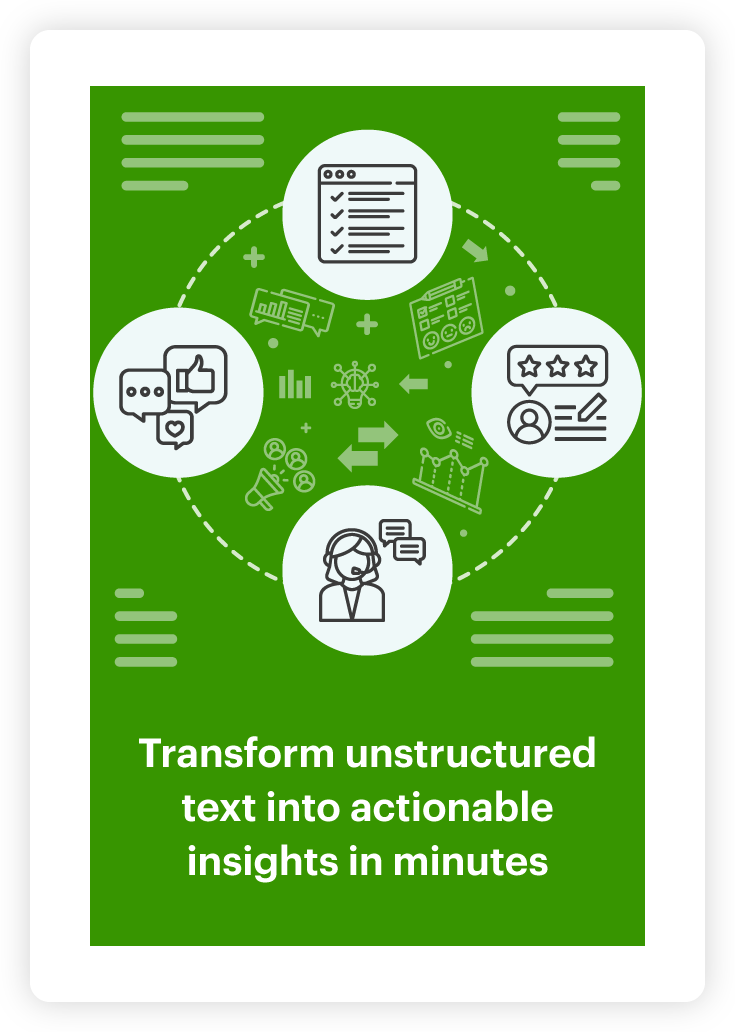How coronavirus has impacted charitable donations

March marked the one-year anniversary of Covid-19 and global lockdown restrictions, and while it has undoubtedly impacted all industries differently, the repercussions have gravely affected the charity and NFP sector. With huge income-generating events like the London Marathon being canceled, general street fundraising being impossible, and the unemployment rate skyrocketing, the sector – and their beneficiaries have been left bereft.
I wanted to explore this in more depth, so I used Relative Insight to analyse the language people used on Twitter when they mention words like “donations” “charity” and “donate”. Firstly, I gathered 15 months worth of this social data from before March 1, 2020 and compared that to data to the current month.
The homeless and the environment
Pre-coronavirus, we found that people were 3.7x more likely to use the phrase “homeless charity”, than today, and we saw that people were using Twitter to encourage others to donate clothes, food, and anything that could be of use.
The Australian bushfires that started in June of 2019 galvanised people all over the world to go on Twitter and spread the word about giving donations. We saw a huge sense of community from people donating to the Australian charities fighting the fires, and people using social media to try to recommend specific charities for others donate to.

Confusion about the NHS
Since we’re still living in a pandemic, it’s not surprising that the word NHS was mentioned 12.6x more in 2020 compared to 2019. Surprisingly though, the phrase NHS charities was used infinitely more in 2020 than in previous time, meaning that this phrase was not mentioned at all last year, even though the charity foundation has existed since 2000.
The significance stems from apparent confusion people have between the NHS and the NHS charities, but also equates to anger people feel towards the government and how underfunded they feel the NHS is. To clarify, the NHS does not accept donations as it’s a national healthcare system, but people can donate to NHS charities as a separate organisation.
Polarising opinions ranged from discouraging donations because people felt it should be the government’s responsibility to fund it, to others encouraging donations because they said that the money donated to NHS Charities Together would provide extra support for healthcare workers. It’s my view that healthcare shouldn’t be politicised, yet the pandemic exposed how fragile the current healthcare system is, and how much more work needs to be done to save it.

BLM and Trans Rights
Another major theme that garnered global attention was two major social justice issues – the Black Lives Matter movement, and trans rights. Phrases like “black lives” and “black charities” entered the vernacular – as these words were not mentioned at all in 2019, despite the fact that BLM movement existed since 2013, and black charities even longer than that.
It was the outrage towards George Floyd’s death and many others like Breonna Taylor, and Ahmaud Arbery that instigated people to donate and show their solidarity and support. Likewise, the phrase “trans rights” was mentioned 2.7x more in 2020, and JKRowling’s Twitter handle mentioned infinitely more in 2020 than 2019, given the controversy over her comments on trans people. Comments revolved around donating to trans or LGBTQ charities and asking for recommendations on charitable organisations to give money to.
Both the NHS Charities Together, and the BLM movement shared a common theme of being politicised, and specifically for the BLM movement which was defamed due to its affiliation with ActBlue. A popular but false claim circulated on Twitter that asserted that all BLM donations went to ActBlue, which is an organisation that funds democratic political campaigns. ActBlue is in fact a charitable fundraising platform that organisations and the democratic presidential candidates used to raise money online. The so-called success of this racially-charged conspiracy campaign derailed people from donating to any of these BLM charities, and people on Twitter were frequently shunned for donating to a so-called ‘political’ organisation.

Covid’s impact on charitable giving in the UK was not just a tremendous financial loss, but rather it did help to raise awareness about the NHS Charities Together foundation, helped distinguish it from the NHS, and also raise awareness about just how underfunded the NHS is. It took a pandemic for people to really see and understand the importance of a robust healthcare system, which resulted in more funding and an increase in wages for healthcare workers as they tirelessly fought on the frontline.
Although the findings from the BLM and trans rights movement were significant, in that people actively showed their support and donated to black/trans charities, and in this case, introduced “black charities” into common parlance, I found no direct correlation between the impact of covid and donations in regards to these two issues.
Donate directly!
It feels that now, people will champion any cause they believe in by donating and spreading awareness on social media. While this is wholly positive, there is also the dissemination of false claims and misinformation that is pervasive throughout it. The confusion between the NHS and NHS Charities Together, and also the unfounded claims of ActBlue hindered people from donating and detracted from the wider issues of supporting healthcare workers and an inspiring movement to eradicate racism.
With the phrase “donate directly” used 3.1x more post-March of 2020, it seems that people are more wary and cautious about where their donations go and how it’s being spent which might put them off. Additionally, this phrase was used in tandem with condemning corporations like Amazon, Virgin, and JustGiving who take a small processing fee from donations. Hence, people are encouraged to “donate directly” to smaller charities so they can keep all of the money and spend it on their own accord.
Change is going to come
Charities already provide information on how donations they receive will be distributed, but these insights demonstrate the importance of being clear and transparent with how money can actually help organisations to mobilise donors.
It’s humbling to see how people show their generosity through donations, but in order to make sure we focus on the important things like enabling change through donations, more needs to be done about policing and correcting false claims as there are repercussions as we know it.
Relative Insight can analyse and compare any source of language data to help you understand more about a particular audience, topic or theme. Contact me, or the team to see the platform in action.
